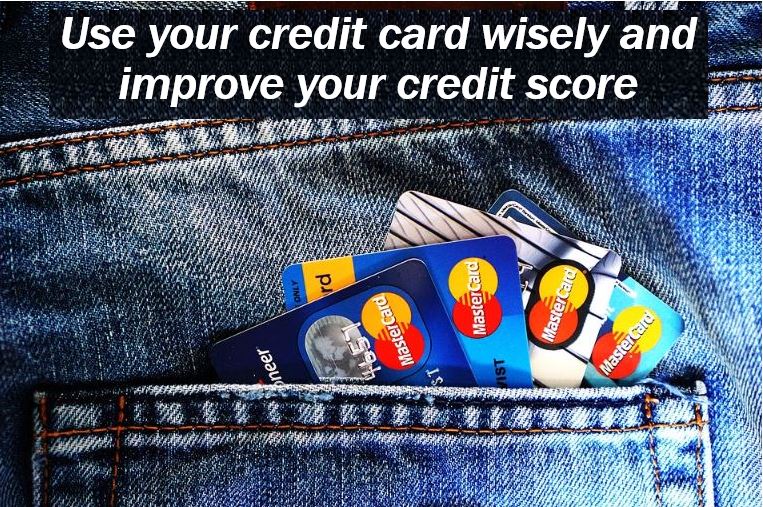 Good credit habits are crucial if you want to keep your finances in check. So, how do you develop these habits in the first place?
Good credit habits are crucial if you want to keep your finances in check. So, how do you develop these habits in the first place?
- First you need a reliable credit facility such as a credit card. One such as the Discover it® Student Cash Back is excellent for people who are new to plastic money.
- Next, you need to use your credit facility as often as you can in order to build up a rich credit history.
You can use the following tips to help you build a good credit history using your credit card.
-
Always Pay Your Credit Card Bill On Time and In Full
It’s very important that you strive to pay your credit card bill on time every month. You can use the autopay feature and other Discover Account tools to automate your monthly repayments.
Paying your credit card bills on time is crucial as it contributes to over 35% of your credit rating. Carrying your balance over to the next month is not wise as this can easily get out of hand. Additionally, not paying on time attracts extra interest, which in the world of credit cards tends to be high. The amount you owe will probably rise faster than you had anticipated.
If you need debt help, there are agencies that can offer advice on how to manage your debts and minimize their impact.
-
Use Your Credit Well
While it’s very easy to make use of your new line of credit to splurge on new items for your house or apartment, it’s always best to think carefully before making big purchases.
Start small and only use your card for important stuff. Avoid going all out on expensive gadgets and appliances. Instead, use your plastic friend to pay for regular monthly subscriptions such as TV and music streaming services. This will help you build your credit history without living beyond your means.
-
Keep Track of Your Debt-to-Credit Ratio
Your debt-to-credit ratio or credit utilization ratio is the portion of your line of credit that you use every month. For instance, if your credit card has a limit of $3,000 and you use $1500, then your debt-to-credit ratio is 50%.
Financial and debt experts advise people to keep their debt-to-credit ratio below 30%. This does not mean that you cannot occasionally exceed this figure when you need to spend on unexpected events. It is simply a question of good money management and staying within your monthly budget.
-
Only Secure Credit When You Need It
When you are new to the world of credit, you might be tempted to get multiple lines of credit with the aim of building your credit score faster. However, be careful, because this strategy can have the opposite effect, i.e., it can have a negative impact on your credit score.
Credit entities use soft inquiries and hard inquiries when dealing with customers:
- Soft inquiries are used by lenders to check your credit score during the pre-screening process. If you have no major outstanding debts, these inquiries will not have a major impact on your credit rating.
- Hard inquiries, on the other hand, are carried out by lenders when you make an application for credit. These inquiries can have a negative impact on your credit rating. When you clock up too many hard enquiries, lenders fear that your level of debt is too high, and are subsequently less keen to lend.
Inquiries contribute to almost 10% of your credit rating. If you have too many hard inquiries in your credit history, your credit score is more likely to decline.
When your credit score falls, lenders are less likely to offer you loans because they think you are living above your means. People with relatively low credit scores also tend to have to pay higher interest rates on loans compared to their counterparparts with high credit scores.
-
Think Long Term
One or two credit cards that offer you quality lines of credit are better than four or more with lower limits. Also, keeping track of multiple credit cards at the same time is more difficult. Credit Karma suggests having one or two credit cards that you can use for many years. A longer and more consolidated credit history is more appealing to lenders. Also, closing your credit cards intermittently can negatively impact your credit score.
Video – What is Your Credit Score?
If your credit score is high, you are a good risk, according to lenders. Conversely, a low score suggests that you are a high risk. Lenders check people’s credit scores and credit histories before deciding whether to approve a loan application.

